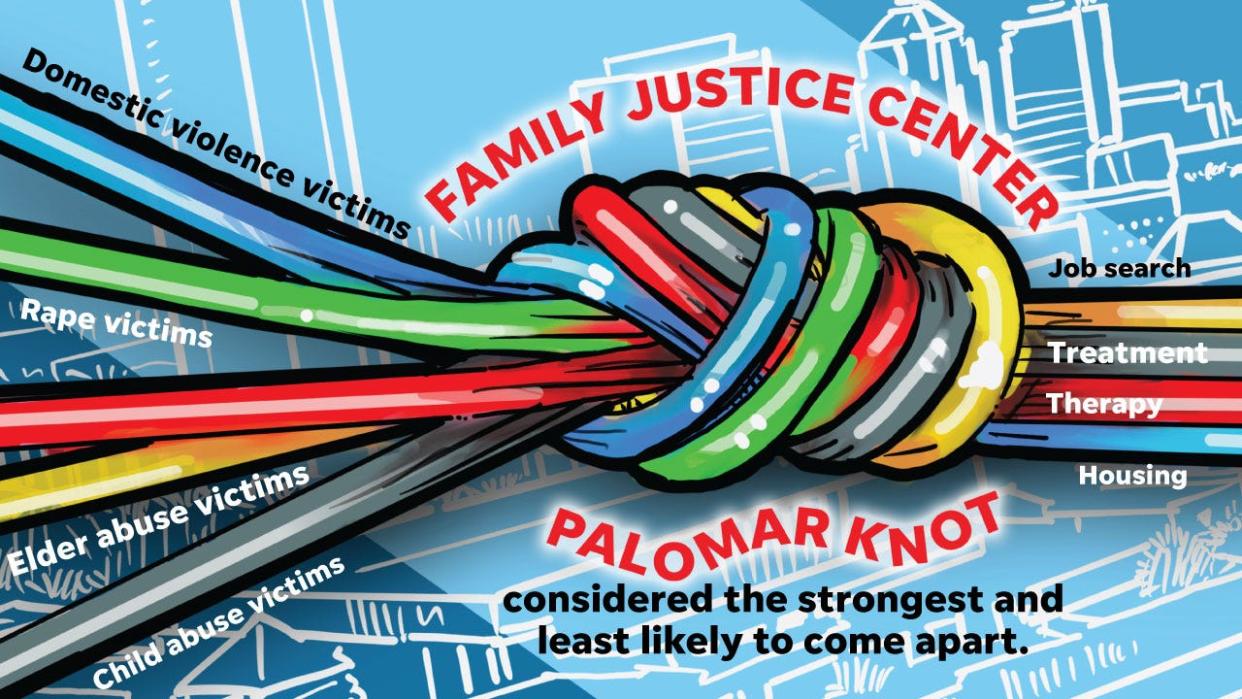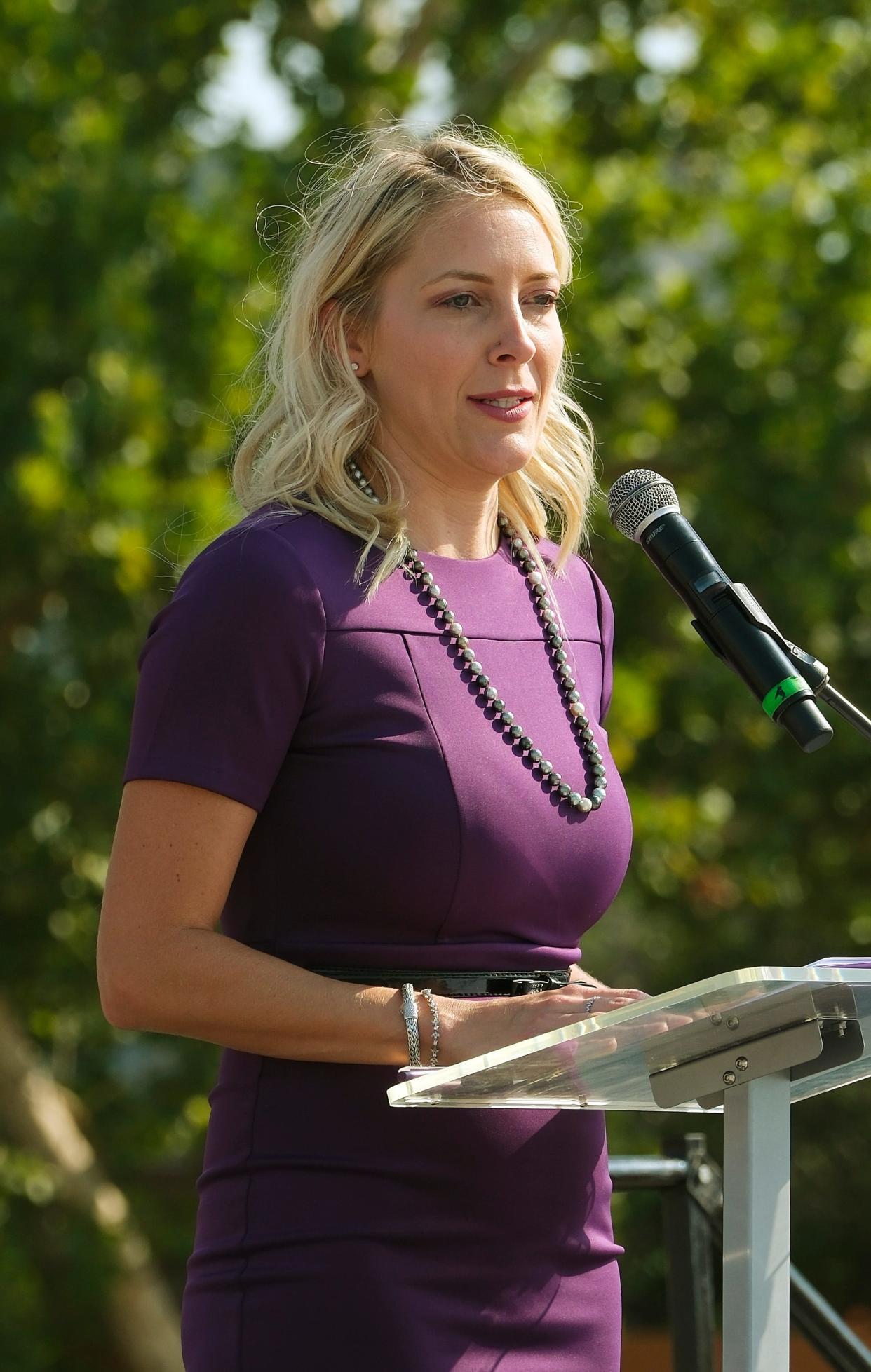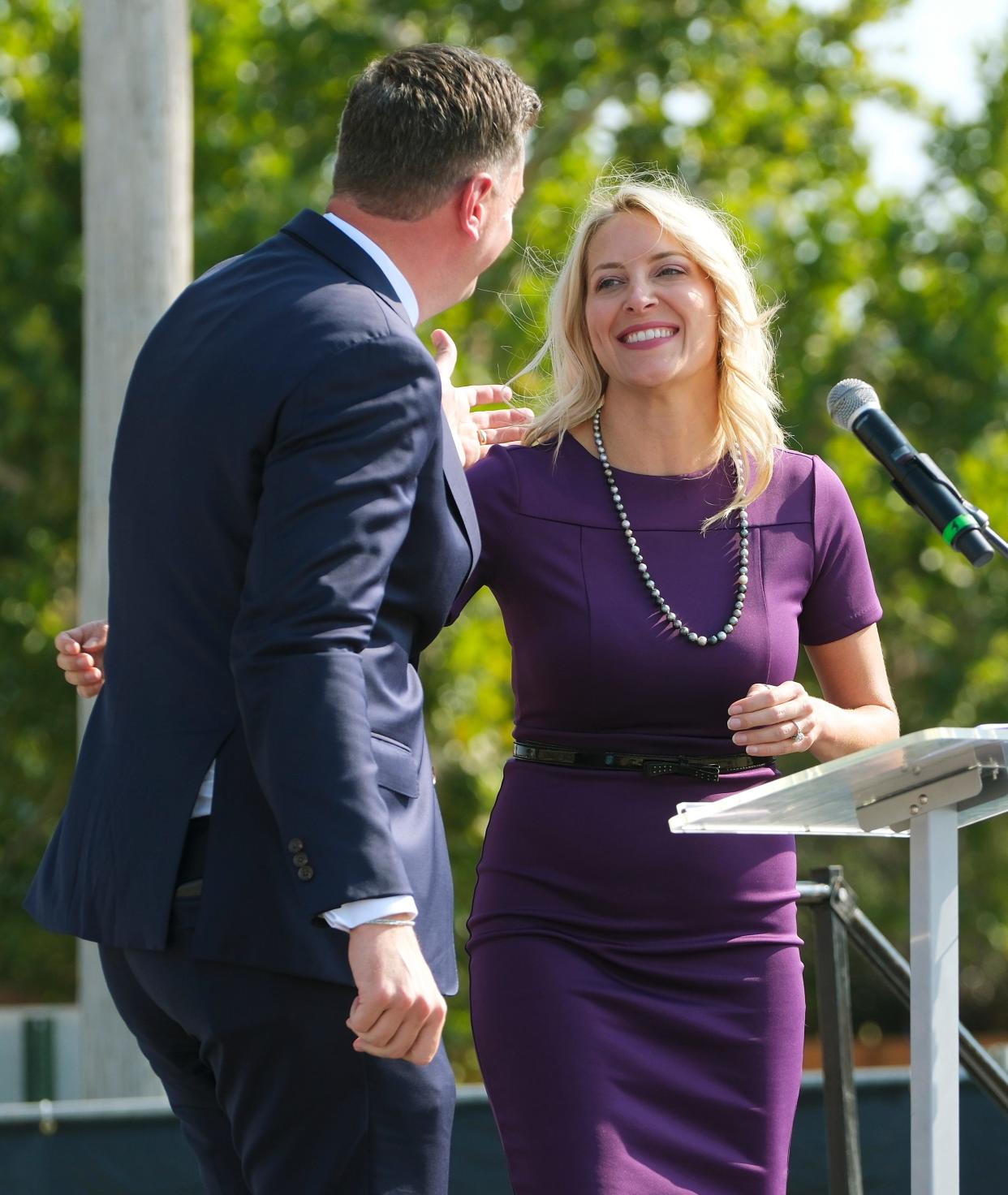Meet the woman behind OKC's innovative approach to helping victims of domestic violence

Safe to say not many 19-year-olds are spending their free time at the police station volunteering to help the victims of rape and other forms of violence and abuse.
"That's what started my career in victim services," says Oklahoma City's Kim Garrett-Funk. "I've always had a heart for helping. But I was also a survivor, and it was really important to pay it forward to other people."
Garrett-Funk now lives in a state ranked as the worst in the nation in domestic violence.
According to a 2023 study by World Population Review, 49.1% of women — one out of two — and 40.7% of men in the Oklahoma have been abused or are currently enduring domestic abuse. The study ranked Oklahoma as third in the nation for the number of women killed by men (single victim/single offender homicide), an increase from previous years.
Fortunately, Garrett-Funk says, she lives in a city that is willing work on addressing the problem.
A big part of that effort is centered around Palomar, a nonprofit organization created to help victims of domestic violence and sexual abuse. The group was founded by Garrett-Funk and her husband, Bob Funk Jr., in 2017. The name was chosen because the palomar is considered the strongest and most reliable of all fishing knots.
Palomar soon will be operating in a new building across the street from its current location at 1140 N Hudson Ave. in Midtown.
Q: When do you expect the new facility to open?
A: Hopefully, we will be breaking ground this summer. After that, 20 months? I have to say it's going to be a gem. No other city in the U.S. is going to have a Family Justice Center like this. Other agencies are in awe that we're able to do this because a lot of them have to go into capital campaigns and fund-raise it themselves. What our mayor and council did was pretty innovative.
Q: You're getting $38 million from MAPS 4 (Metropolitan Area Projects) a multi-project bond issue funded by a one-penny sales tax.
A: Yes, $38 million for the building, and another $4 million as an endowment, which may pay our electric bill. But the project doesn't just help Palomar, it helps our partner agencies, too, because they won't have to pay rent. They can take that off their budget and have that money for a new employee or do some innovative programming. It's a win for a lot of entities.
Q: You first started helping victims of violence in Reno, Nevada?
A: I was born and raised in Reno, and I graduated from the University of Nevada at Reno with my bachelor’s and master’s in social work. I began volunteering at a crisis call center. I responded to sexual assault calls and helped provide advocacy at the hospital. And that's what really started my career in victim services. Then I moved on to the Reno Police Department and worked on homicide cases, sex crimes, child abuse, any kind of violent crime. I would provide advocacy for the families.
Q: You moved then to OKC?
A: Yes, my husband had some great work opportunities, so we moved 14 years ago. I missed the work I was doing and there was an amazing opportunity at the OKC Police Department to start their victim services unit. And that's when I saw the need for building a collaborative approach. Families could come in, and they would be terrified. They were afraid they were going to be hurt that night. Some had physical injuries. They didn't know where they were going to go. And about all we had to offer were a lot of pretty brochures ... go here for legal assistance ... go here for a protective order ... here for a forensic exam. There were a lot of great agencies, but they were inadvertently siloed.
Q: And there was a better way?
A: I started doing research on ways to reduce barriers and create efficiencies for clients and found the family justice center model. It started in San Diego about 15 years earlier, and I approached command staff (in the police department) about the idea. They really liked it and said, "let's bring out the experts and do a study tour of our community and then move from there." It was pretty amazing. The police department took the lead on that. And we quickly saw that it was what survivors wanted — a coordinated response. And it's what the professionals wanted, too. It's just so counterproductive when you have to leave somebody a voice mail, and then they call you back later, when you've got other cases on your desk. At Palomar, you can literally just walk down the hall and you've got relationships with all the different agencies. You can get a quicker response and a better response.
Q: So your approach is similar to triage in a medical setting, you try to determine the needs of those who come in and then send them to the right place for care?
A: Yes. The people you're talking about we call "navigators," and they meet with the clients and triage them, and then we have long-term case workers, we have a legal aid director who is trying to coordinate low or pro bono services with attorneys, and a courts coordinator who helps ensuring offender compliance and others.
Q: You work closely with the state Department of Human Services, an agency that had been doing such a terrible job of caring for children in state custody that a court ordered it to be placed under federal monitoring. Have you seen improvements in the DHS's performance?
A: It was actually very controversial having them come on-site. Some thought it would deter clients from coming in because they would be scared that their child would be placed in custody. But we felt really strongly that anyone who interfaces with our clients has a seat at the table. And so DHS moved on-site before we opened. And a few years later, I was on a panel with one of their (DHS's) directors. She said pre-Palomar, 100% of their cases would go into placement when there was domestic violence. And she said now it's less than 10%, which is huge. This happened because of our collaboration.
Q: You have a huge portfolio — domestic violence, sexual assault, human trafficking, elder abuse and more. Is there one of these areas that you think is most important to address in OKC?
A: If you look at the 911 calls, that are related to domestic violence, there were 36,000 last year. So that's the bulk of our cases. But there's a wide array.
Q: What is it about Oklahoma that causes it to rank so high in domestic violence?
A: I would say historically it hasn't been a priority of the state. It doesn't even have a single line item in its budget for victim services, not through DHS or any other entity. The bulk of the agencies we work with are non-profits that get their funding federally, and that has decreased 25% over the past five years. We really need state support. It's a public safety issue, a public health issue. We've been asking and advocating and trying to garner state support, but we're not there yet.


This article originally appeared on Oklahoman: OKC nonprofit Palomar works to curb domestic violence, sexual abuse
